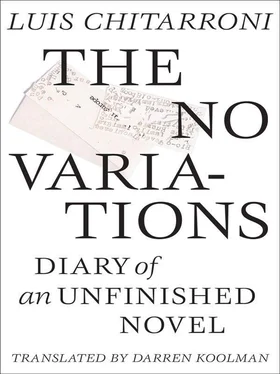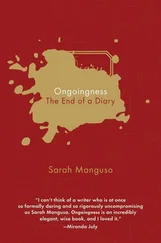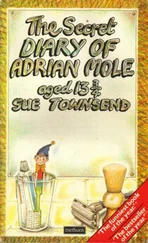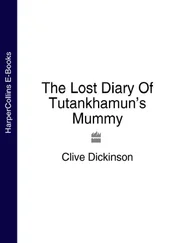A.B. had recklessly abandoned her studies of Balkan literature … And besides, this horror has been going on the past two days! The interminable journey, her proud and condescending peers always near her: a nightmare on terra firma. It’s not that she [Annick Bérrichon] lacks the courage to insult them and be free of them. She doesn’t do so because they’re her “colleagues,” and together they form a single body, so that any insult would only bleed [spread] like a lacerated organ; indeed, any repudiation, calumniation, would only redound on her, lacerate her, multiply her fear. They didn’t matter to her personally, individually (although they’re all her “colleagues,” they each belong to different species), it was the group that mattered, the corp. The historical fact. It was the collapse of its reputation she feared.
That the creature hanging near her left shoulder (she recognized the general design and principle parts of its corporal vesture) was a female, she was in no doubt. She’d learned from Sister Juana’s First Dream that bats are birds without feathers. Of all the obscurities to unveil, [for God’s sake]! Incubus / Succubus: taenia saginata . She was well acquainted with the delay, the docility, the asthenia: for whole semesters she’d been afflicted by self-reminders of her corporate guilt. Orphaned girls in rags, scribblers of theses and dissertations, of papers and ponencias , like the ones she read on campus, safe offerings, inspiring clumsy harmonic and acoustic reverberations by others, avoiding all the risks she herself had taken. Behind mirrors. Behind the mirror of the stand-in poet’s indrawn conceitedness, of the cheiroptera’s tremulous [trembling] voice that whispers near her shoulder (on which she believed it was now perched) a soft interjection that through impatience would grow into a peremptory demand. And this will be the last straw, provoking her, Annick Bérrichon, to an angry boast about having never been corrupt, about having never stooped to be a quadruped, about having acquired as much knowledge as she needed. For she knew everything. And yes, she was female.
And how strange [it was] to be [so] exposed, so visible! At her age! [During the course of her long life,] she continually shed her coquettish vestures although she continued to make them the butt of her jokes. Even now, with her wrinkles, her involuntary whistles, her sudden outbursts, her habit of praying, and her occasional lapses of memory, she’s managed to retain her peculiar style.
How long it took to impose it on the others! Almost as long as it took her to adopt it herself. An ugly old crone who became well known for her wit and wisdom. What seminal moments in her life [or her biography] vindicate this reputation? None. They were foisted on her all at once, as if she’d lived her whole life in a daze until, one day, when she was ugly and old, she awoke and found herself famous for being witty and sage.
Lie. She’d been ugly from birth, and only became intelligent long afterwards. Ugly as sin. As she discovered when she looked in the mirror and saw her distorted features and lamented the fact they were immutable as stone, and afterwards, sought the intervention of these animistic powers that now beleaguer her, imploring them to make her literary hobby a cosmetic and prosthetic veil — to make a covenant, a pact with her: that they allow her, at least in part, to be someone else, to be their half-sister (they didn’t have a sister, but she suspected there would be a temporary easement of parental divisions). Her ugliness had moreover two aspects, one distinctive, the other alarming: together, they aroused sympathy in no one except herself. It wasn’t the consecratory effect of the whole that made others recoil, but a meticulous examination of each part. For example, her eyes, her nose and her mouth had each been considered ugly per se : one had to get used to seeing them in combination to appreciate the coherency of the whole.
So it was perfectly understandable why the animals approached her, [then and now,] curious about something that wasn’t very different from themselves. Unseen, timid, ignorant … without a theory!
Another of the friendly, filthy zoomorphs had landed on her left shoulder, biting her [corresponding] ear. It didn’t hurt very much: a mere pinching sensation incident to the mechanics of mastication. A sensation that bordered on pleasure, an act that seemed to solicit from her a [reciprocation] reciprocating gesture. Something she was unaware of because of her age—78 years — as she was of many things except the things she already knew. Her vast knowledge of Balkan literature, for example, brought her great renown. But, in compensation, Annick Bérrichon knew nothing about Malagasy fauna. In compensation, indeed, because, in that ultimate or penultimate hour, all her experiences seemed to vanish, evanesce before all those snouts and muzzles, the beaks and claws surrounding her — the sudden intervention of a gifted imagination, or the chance effect of light on the surrounding scenery. What a pity! Otherwise, she’d have known the imperfectly penitent occupant of her sinister shoulder was actually an aye-aye.
Atrius Umber (pseudonym of Belisario Tregua), “The Dreadmist.”
“The Dreadmist”
And Moses drew near unto the thick darkness where God was .
Exodus XX, 21
God was, and Annick Bérrichon also was. They weren’t speaking. Madame Scardinelli was searching in the dark for those diurnal creatures that a long night’s digestion had caused her to imagine. Madame Obstreperous had learned to cross herself far from the mirror. She did so that no one but God would notice. And the preponderant maki on Annick Bérrichon’s left shoulder, which unlike the owl that hung upside down, could not see the future, but both cried in unison: “We can’t get out.”
Side discussion with Cornelius Sacrapant (Wynthrope-Smyth)
— I could hear them on your shoulder — said Cornelius Sacrapant — although it just struck me that they speak with great authority about something they know little about.
— You mean about the mysteries of the sects and French songwriters? — I asked.
— No, no, about English Literature.
— Do you think you know more than we are ignorant of?
— The question isn’t well phrased. You are ignorant of far more things than I happen to know. Don’t take it the wrong way: You ignore without knowing you do so.
— Then please give me an example.
— If I take yours and your Argentine friend’s taste for naturalism seriously, I’d have to point out the fact that, of all the practitioners of the genre, you omit the only names that are actually worth mentioning — said Sacrapant [smugly, pointedly].
— I don’t believe we mentioned any names, but how about … — so I ventured — Ford Madox Hueffer, also known as Ford Madox Ford?
— Nonsense — dismissed Sacrapant—. That’s [logically] the one name I’d expect one of you to say. An outstanding exponent of international modernism, his reputation’s been challenged a thousand times over, but he never seems to go away. A kind of walrus carcass, long since emptied of its innards, which the ingenious hidalgos of cultural journalism float to the surface every now and then. So eminent is he, that they suppose him — not that I’m changing the subject here — the “discoverer” of D. H. Lawrence. (You can imagine that “discovering” Lorenzaccio wasn’t the most difficult thing in the world, true?) No, not Ford Madox Hueffer, nor his cognate.
— Then who? — I asked in mock reverence to conceal my dudgeon.
— Hubert Crackanthorpe, for example, a matrilineal ancestor of mine, or George Egerton. I know erudition is misleading in every language, and the sea in every language is deaf, but have you heard or read anything about them?
Читать дальше
